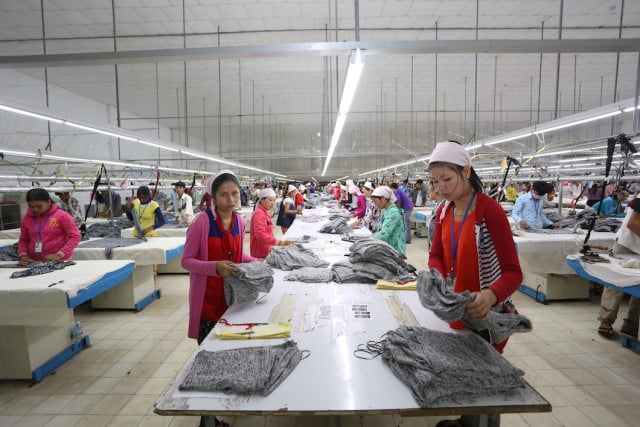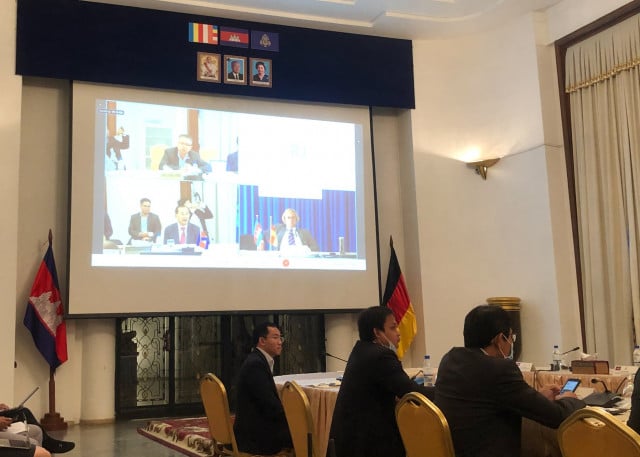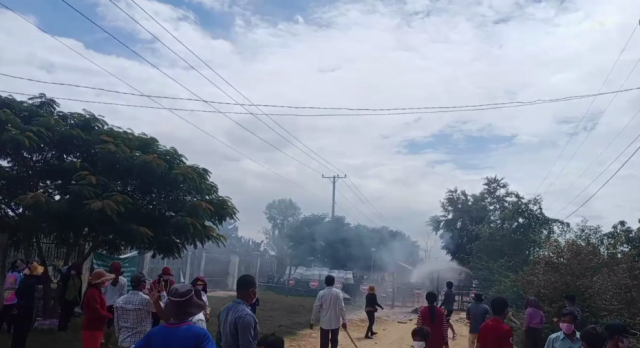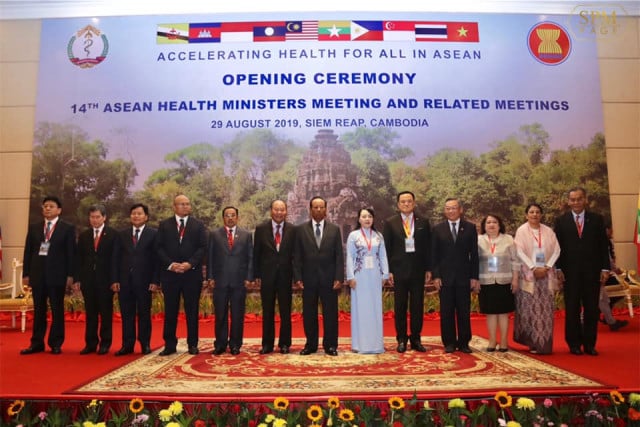The Garment Manufacturers Association Asks for Support to Maintain Cambodia’s EBA

- Phoung Vantha
- July 9, 2020 10:20 AM
The cost to the country’s economy and garment workers will be huge, the association says
PHNOM PENH—The Garment Manufacturers Association in Cambodia (GMAC) on July 8 issued a statement, asking the International Labour Organization (ILO) and other organizations to support its call to the European Commission to delay by one year withdrawing Cambodia’s Everything But Arms (EBA) preferential trade scheme.
This follows a meeting organized by ILO and attended by GMAC on July 2 during which participants discussed ways to support manufacturers affected by the drop in sales caused by the pandemic and workers laid off due to factory closures based on the “Garment Industry Call to Action” program that ILO had adopted last April.
"The priorities identified in the Call to Action and the ILO's invitation for the consultation with GMAC include how to support manufacturers to survive the economic dislocation caused by the pandemic and how to protect the income support needs of workers in the sector,” GMAC said in its statement. “These are the correct concerns given the crisis caused by the drop in global apparel demand, particularly in the major export markets of the European Union and North America.
“Cambodia already has suffered some 400 factory suspensions and more than 150,000 job losses in the garment sector, with scores more factories and tens of thousands of additional workers at imminent risk,” GMAC wrote in its statement.
While this Call to Action has so far generated no concrete benefit such as income support or social safety net for workers, and had not identified or mobilized buyers, donors or international financial institutions that could help provide this, it has been endorsed by European buyers and supported by Germany, GMAC said.
So all those who endorsed it should focus their efforts on the fact that Cambodia is set to have its European Union's Everything But Arms (EBA) trade benefits suspended on August 12: “the looming second blow that the apparel, travel goods and footwear sectors in Cambodia face on August 12, with the scheduled withdrawal of €1 billion [$1.34 billion] in trade benefits.”
The country’s EBA trade scheme, which includes duty-free and quota-free market access, is set to be suspended next month due to what the European Union considers Cambodia’s failure to respect human rights and labor rights. The decision was made by the European Commission last June.
At the meeting on July 2, the GMAC statement read, "GMAC explained…that this second blow would lead to even more factory closures and displaced workers, and increase poverty in Cambodia.
“The ILO and all of the organizations endorsing the Call to Action, also endorse GMAC's appeal, already conveyed in early June to the European Commission and European Parliament, that given the unanticipated impact of COVID-19 on Cambodia the European Commission's decision, made in early February before the impact of COVID-19, to withdraw certain EBA benefits effective August 12 be reassessed and postponed for one year,” the statement read.
"If the concerns expressed in the…Call to Action are to have any meaning in Cambodia, we also appeal to all of those that have endorsed it, including the ILO which is promoting it, to support GMAC's urgent appeal to the European Commission and Parliament," GMAC said in its statement,
The Cambodian government had made no request with the European Commission for the postponement of the country’s EBA benefit suspension. Prime Minister Hun Sen has said several times that Cambodia would not exchange its sovereignty for EBA.
Earlier this month, Commerce Ministry spokesman Seang Thai said that Cambodia has markets in numerous countries that can enable the country to support its economy without EBA.
"Cambodia is ready to seek free trade agreements with other countries: China, South Korea, Eastern Europe, United Kingdom, United States, Japan and India," he said.















